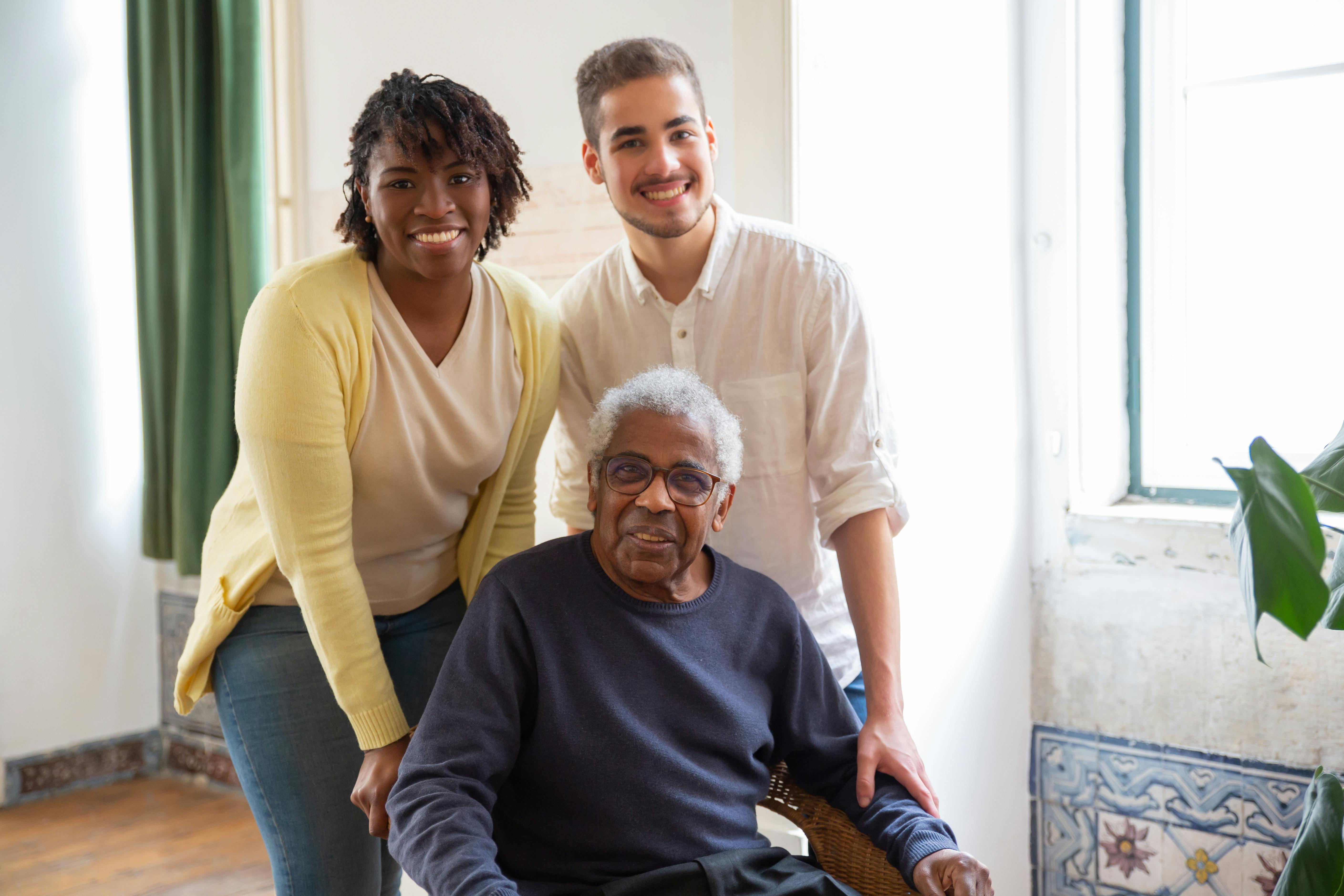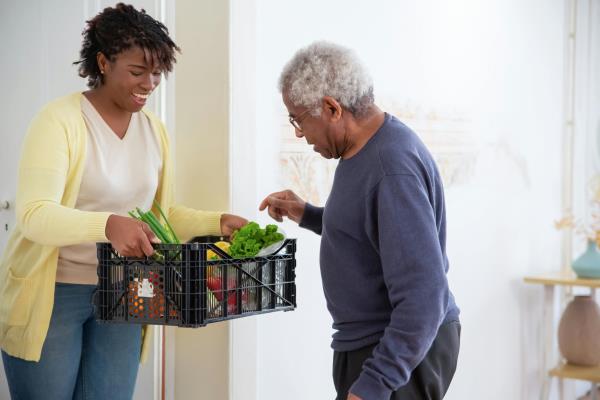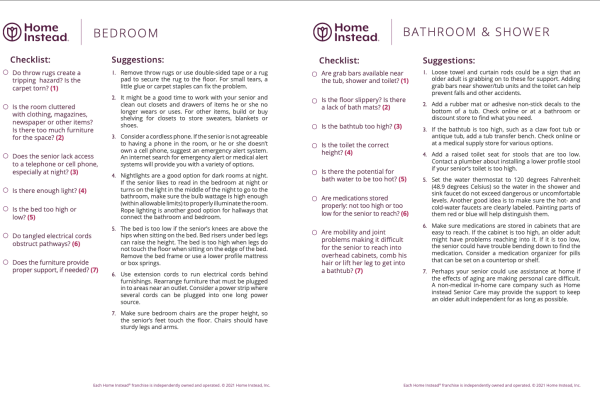As our loved ones age, they might find daily activities increasingly challenging. If you’ve noticed changes in your elderly loved one's behavior, it could be a sign that it’s time to consider in-home care. Forgetfulness, poor eating habits, frequent falls, and a decline in personal hygiene are often early indicators. In-home care provides the necessary support, allowing your loved one to maintain their independence while ensuring their safety and well-being.
Recognizing the Signs of Need
Caring for a loved one can be incredibly rewarding, yet it also presents challenges. Over time, you may observe changes in their behavior and health. Recognizing these signs early can help ensure they receive the necessary care to maintain their quality of life.
Increased Forgetfulness
Forgetfulness is common as people age, but when it interferes with daily living, it becomes a concern. Your loved one might forget to pay bills, keep appointments, or lose track of important conversations, leading to missed medications or getting lost while driving. These memory lapses can put them in dangerous situations, which can be better managed with in-home care.
Decline in Personal Hygiene
Personal hygiene is essential for maintaining health and well-being. If your loved one is neglecting their grooming habits, it might indicate deeper issues. Look for signs such as untrimmed nails, unkempt hair, body odor, and dirty clothes. Neglecting personal hygiene can lead to infections and decreased self-esteem, signaling they might need assistance with daily tasks.
Frequent Falls or Accidents
Mobility issues can increase the likelihood of falls, which can severely impact health. If your loved one has experienced frequent falls or accidents, it’s crucial to address the risk:
- Look for bruises or unexplained injuries.
- Ask about recent falls or close calls.
- Notice if they are unsteady on their feet or holding onto furniture for support.
Frequent falls can indicate a need for mobility aids and daily supervision, which can be provided through in-home care.
Unexplained Weight Loss
Weight loss might be a subtle but significant sign of underlying problems. It can be caused by difficulty cooking or grocery shopping, loss of appetite due to depression or medication side effects, and difficulty chewing or swallowing. Monitoring their eating habits and considering in-home care can ensure they receive nutritious meals regularly and stay hydrated.
Social Withdrawal and Isolation
Emotional well-being is as important as physical health. If your loved one starts withdrawing from social activities or shows signs of depression, take note:
- They no longer attend social gatherings or engage in hobbies.
- They seem more irritable or sad.
- They express feelings of loneliness or helplessness.
Isolation can lead to depression, which further affects their overall health. In-home care can provide companionship and encouragement to engage in social activities.
Recognizing these signs early and acting on them can dramatically improve your loved one's quality of life. Each of these signs, from forgetfulness to social withdrawal, indicates a potential need for additional support. Keep an eye on these changes and don't hesitate to seek a professional evaluation to ensure the best care for your loved one.
Assessing Daily Living Activities
Recognizing when your loved one needs in-home care starts with observing their ability to manage daily activities. It’s often the small signs that tell us they’re struggling more than they admit. Let’s explore some key areas where difficulties may arise.
Challenges with Meal Preparation
Meal preparation is a vital daily task. When someone starts facing challenges in cooking, it can significantly affect their nutrition and overall health. Here are a few points to consider:
- Poor Nutrition: Struggling with meal prep might lead to skipping meals or relying on unhealthy, ready-to-eat options. This can result in nutritional deficiencies, weight loss, or weight gain.
- Health Risks: Poor eating habits may increase the risk of chronic diseases. Fresh fruits and vegetables can turn into fast food and snacks if cooking becomes too difficult.
- Safety Concerns: Burn injuries from the stove or forgotten meals in the oven can become frequent. These mishaps pose serious safety risks.
If your loved one is opting for frozen dinners over fresh meals or isn’t eating regularly, it might be time for extra support.
Issues with Medication Management
Managing medications correctly is essential for maintaining health, especially as we age. However, this can become challenging for many seniors. Here’s why proper medication management matters:
- Missed Doses: Skipping medications can lead to worsening of medical conditions. It’s crucial for chronic illnesses like hypertension or diabetes.
- Overdosing: Taking more than prescribed due to confusion about dosages can be dangerous, sometimes leading to hospitalization.
- Complex Schedules: The more medications one has to take, the harder it becomes to remember the right time for each one. Even a small mistake can have serious consequences.
Look for signs like pill bottles with varying amounts of pills, confusion about what to take when, and frequent trips to the pharmacy. These signal that your loved one might need help with their medications.
By paying close attention to these areas, you can better determine if your loved one might benefit from in-home care. Red flags in meal preparation and medication management often indicate underlying issues needing immediate attention.
Safety Concerns
As our loved ones age, their safety becomes a primary concern. An unsafe environment can lead to accidents, injuries, and a decline in their overall well-being. Let’s explore some common safety concerns that might indicate it’s time to consider in-home care.
Home Environment Risks
The home can be full of hidden dangers, especially for an elderly person with declining health. Identifying and mitigating these risks is essential to ensure their safety.
Some common home environment risks include:
- Stairs and Steps: Uneven steps and lack of handrails can lead to dangerous falls.
- Bathroom Hazards: Slippery floors, no grab bars, and high bathtubs increase the risk of slipping.
- Poor Lighting: Inadequate lighting makes it difficult to see potential obstacles.
- Cluttered Spaces: Excessive furniture and objects can create tripping hazards.
- Kitchens: Sharp objects, hot surfaces, and easily reachable cleaning chemicals can be hazardous.
Establishing a safer home environment might mean decluttering, adding grab bars, improving lighting, and other modifications to ensure safety.
Driving and Transportation Issues
As driving skills decline, transportation becomes another critical safety concern. The ability to drive often correlates with independence and freedom, but it can also be a significant risk factor.
Declining driving abilities can manifest in various ways, including:
- Slower Reaction Times: Increased risk during emergencies.
- Poor Vision and Hearing: Essential for observing traffic signals and sounds.
- Confusion or Disorientation: Getting lost or confused can lead to dangerous situations.
- Physical Limitations: Difficulty turning the wheel or pressing the pedals.
When driving becomes a risk, alternative transportation options need to be considered. This could involve:
- Family or Friends: Reliable but can be demanding.
- Public Transportation: Often inaccessible for those with mobility issues.
- Community Services: Specialized transport services for seniors.
- Ride-Share Services: More flexible but can be costly.
Assessing and addressing these transportation issues is vital to maintaining safety and ensuring mobility for your loved one.
The Emotional Impact of Care Needs
Providing care for a loved one can be emotionally challenging. It’s essential to understand the feelings and experiences both caregivers and their loved ones might go through. This understanding can help everyone involved feel more supported and less isolated.
Feelings of Guilt and Stress
Caregivers often face significant emotional struggles. Taking care of a loved one can lead to intense feelings of guilt and stress.
- Guilt: Many caregivers feel they are not doing enough, even when they are dedicating much of their time and energy. This guilt can stem from the feeling that they should be doing more or that they are not providing the best care.
- Stress: The responsibility of caregiving can also take a toll on mental health. The constant worry about your loved one’s well-being, coupled with potentially balancing a job and other family duties, can lead to overwhelming stress.
These emotions can impact family dynamics. Stress can lead to arguments and misunderstandings within the family, as emotions run high. Recognizing these feelings and addressing them can help alleviate some of the strain.
Recognizing the Need for Help
It’s vital for caregivers to acknowledge their own limits. Providing care can be exhausting, and it’s okay to seek help. Recognizing when you need assistance is a sign of strength, not weakness.
Here are some signs that it might be time to seek help:
- Exhaustion: If you feel constantly tired and can’t get enough rest, it’s a signal that you need support.
- Irritability: When stress levels rise, patience can wear thin, leading to irritability and frustration, both with your loved one and other family members.
- Physical Symptoms: Stress can manifest physically, causing headaches, back pain, or other health issues.
- Isolation: Feeling isolated from friends and family is a common experience for caregivers. It’s important to maintain social connections for your own mental health.
Seeking help can involve enlisting other family members, hiring a professional caregiver, or finding support groups for emotional backing.
By recognizing these signs and seeking help when needed, caregivers can ensure they provide the best care for their loved ones without sacrificing their own well-being.
Conclusion
Recognizing the signs that indicate the need for in-home care for your loved one is crucial. Symptoms such as frequent forgetfulness, poor eating habits, and mobility issues can signal the need for professional assistance.
Ignoring these signs can impact your loved one’s quality of life. Address the situation head-on and explore in-home care options. It's a proactive step that ensures they receive the best possible care in the comfort of their home, promoting their safety, well-being, and independence. Proactively seeking help can lead to a better quality of life for both you and your loved one.
Take the Next Step
If you’re noticing these signs in your loved one, don’t wait. Contact us at Home Instead to discuss how our in-home care services can help. Our compassionate Care Professionals are ready to provide the support your family needs. Call us 24/7 at 860-896-5295 or complete the form below and one of our Client Care Coordinators will be in touch to see how we can help and provide additional resources.



